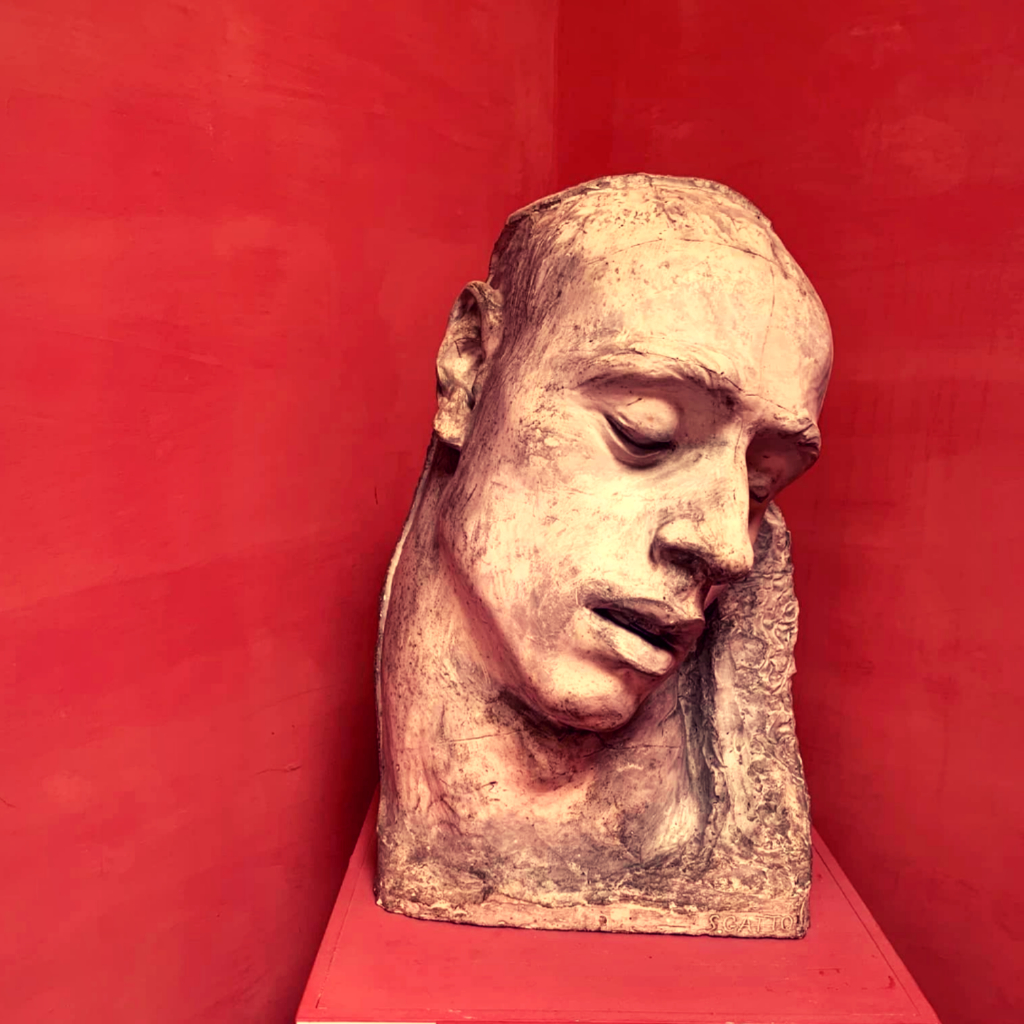Sergiu Celibidache (1912-1996) has been called a “musical giant”, a “magician” “a brilliant lion-tamer” and an enfant terrible of classical music. He was famous for refuting the commercial aspects of the music business, which makes his rare recordings even more valuable. Legendary Sergiu Celibidache’s special techniques of motivating the orchestra to obtain the effects he desires is a really magical thing.
The foundation of his vocation and fame was laid in his childhood. Sergiu Celibidache was thrown out of his family home in Romania as a teenager due to his plans to pursue a career in classical music. After periods of homelessness, he won the competition to be the youngest conductor of the Berlin Philharmonic and became one of the most celebrated conductors of the twentieth century.
Celibidache was a master Straussian and his reading of the symphonic tale Till Eulenspiegel ranks among the best recordings available. His version of Rimsky-Korsakov’s Sheherazade is full of sensuality and subtlety.

The 72-year-old Mr. Celibidache will be making his American debut, when his reputation has achieved legendary proportions. He is supposed to be a great conductor, but because he refuses to make records, and because his rehearsal demands are such that no American orchestra could ever afford to hire him, his status as a legend rests on word of mouth.
He also is an elderly enfant terrible who has the reputation of saying exactly what is on his mind. In a European interview a few years ago he was asked what he thought of Herbert von Karajan. Karajan, replied Celibidache, was an elegant but superficial conductor. The interviewer almost dropped his notebook. ”But,” he stuttered, ”Karajan is known everywhere in the world.”

”So is Coca-Cola,” Mr. Celibidache answered. It is a true story, and it can be confirmed that Mr. Celibidache is indeed a man who speaks about his colleagues in a way not guaranteed to make them love him. In Philadelphia, where he is teaching at the Curtis Institute, he was asked about some of the conductors of past and present he had heard. Toscanini, for instance.
”I will fight his ideas down to the last drop of my blood,” Mr. Celibidache said. ”He was a perfect conductor – and a poor musician.” Karajan, Bernstein, Mehta, Muti? ”They do not live in my world. I have nothing to do with them. Muti has an extraordinary talent but he is an ignorant, as Toscanini was.” Solti? ”A fantastic pianist, a musical man, but not a conductor.” Ormandy? ”How could such a mediocre conductor succeed Stokowski?”

But Mr. Celibidache does have nice things to say about some conductors, all of them dead. Leopold Stokowski to him was ”a king of color.” And of Wilhelm Furtwängler, ”His inspiration still means something to me. He was the first and last conductor I have heard who could put the vertical pressure in relation to the horizontal fact.”
He says he was trained as a philosopher and mathematician as well as a musician, and he has developed a theory of ”musical phenomenology” that explains everything about the structure of music. At his Curtis lectures the air is full of such terms as phenomena, epiphenomena and structurization, with Edmund Husserl, founder of the phenomenological movement, constantly being quoted. In trying to explain musical phenomenology he goes into the ”objectivization” of sound, structures, spiritual conditions.
His auditors sit before him with glazed or scared faces, obviously not knowing what he is talking about. In his relationship with the class, Mr. Celibidache can be sarcastic, cutting and very, very superior. Yet at the five-minute break students crowded around him while he was seated at the piano, and he could not have been more affable.
We invite you to watch an excerpt from a 1991 documentary directed by Jan Schmidt-Garre. This film is not a biography of Sergiu Celibidache as much as it is an opportunity to follow the conductor into rehearsals, teaching sessions, interviews, and unguarded moments from his daily life – for example, a visit to Israel where he meets several former orchestral musicians, and a return to his native Romania.


